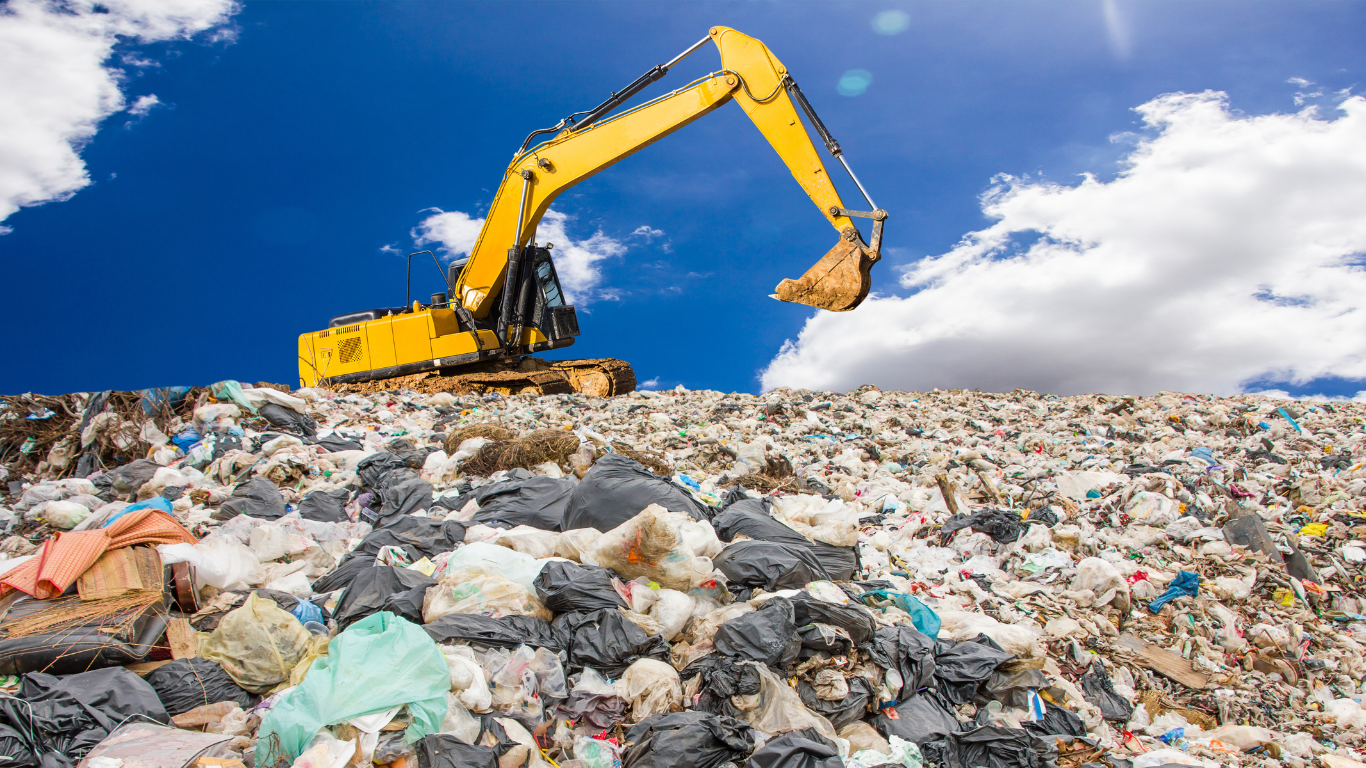
Reducing waste. Protecting resources. Building a greener future.
Maryland is leading the way in helping residents, businesses, and local governments reduce the amount of waste sent to landfills. This work, known as waste diversion, includes reuse, recycling, and source reduction—finding ways to prevent waste before it’s ever created. We also work closely with facility operators, haulers, and waste generators to ensure that materials are stored, transported, and disposed of safely.
Waste diversion is more than just sorting your recyclables. It’s a statewide effort that spans regulatory oversight, composting, recycling market development, and preventing wasted food. Through partnerships, education, and innovation, we support programs that keep valuable materials in use and out of the waste stream.
Our Commitment to Recycling
Recycling is a shared responsibility under the Maryland Recycling Act (MRA). Larger counties and Baltimore City—those with more than 150,000 people—are required to recycle at least 35% of the waste they generate. Smaller counties and state agencies have a 20% requirement. On top of that, the state itself is working to reduce waste. Beyond these minimums, Maryland has also set voluntary goals: a 60% waste diversion rate and a 55% recycling rate. These goals are ambitious but achievable when we all work together.
We work closely with counties, municipalities, and private partners to support programs and policies that meet or exceed these goals. We also provide data tracking, technical assistance, and regulatory guidance to keep everyone on track.
Managing Materials the Smart Way
One of our most visible roles is supporting reuse and recycling across all sectors—at home, in schools, at work, and in government operations. Electronics, construction materials, durable medical goods, scrap tires, and even household items like batteries and motor oil can have a second life. We help people find facility locations, start programs, and connect with certified haulers and processors.
Wasted food is a growing area of opportunity. In Maryland, food accounts for more than 20% of all discarded materials in our municipal disposal systems. We work to promote food rescue, composting, and other organics recycling strategies that keep this material out of landfills. State law requires certain food-generating businesses to separate and divert their food residuals.
The department also plays an essential role in guiding how solid waste is managed more broadly. This includes overseeing landfills, transfer stations, and waste-hauling systems while encouraging alternatives like construction and demolition recycling, environmentally preferable purchasing, and landfill-diversion strategies.
Promoting Shared Responsibility
Maryland is moving toward a model known as Extended Producer Responsibility (EPR) to support the management of certain materials. This means that manufacturers and producers may be asked to take more responsibility for the full lifecycle of the products they sell—from design to disposal or recycling. We are also committed to strengthening local and regional markets for reusable and recyclable materials. We have a non-regulatory role that identifies businesses that use recycled feedstock and supports infrastructure that turns discarded materials into jobs and usable products.
Guidance for the Regulated Community
If you are part of a business, government agency, or other regulated entity, we offer clear guidance on your responsibilities under Maryland’s laws.
Permit forms, waiver applications, reporting tools, and recycling targets are all available to help you stay in compliance. We are here to assist—not just to enforce, but to support you in reaching your sustainability goals.
Tracking Progress and Sharing Results
Each year, we compile the
Maryland Solid Waste Management and Diversion Report that provides a detailed look at how jurisdictions are performing. The report includes recycling rates, source-reduction credits, and updates on new laws and programs. These insights help inform planning, funding, and continuous improvement at every level of government.
Contact Us
For questions or additional information, email
[email protected] or call 410-537-3314.